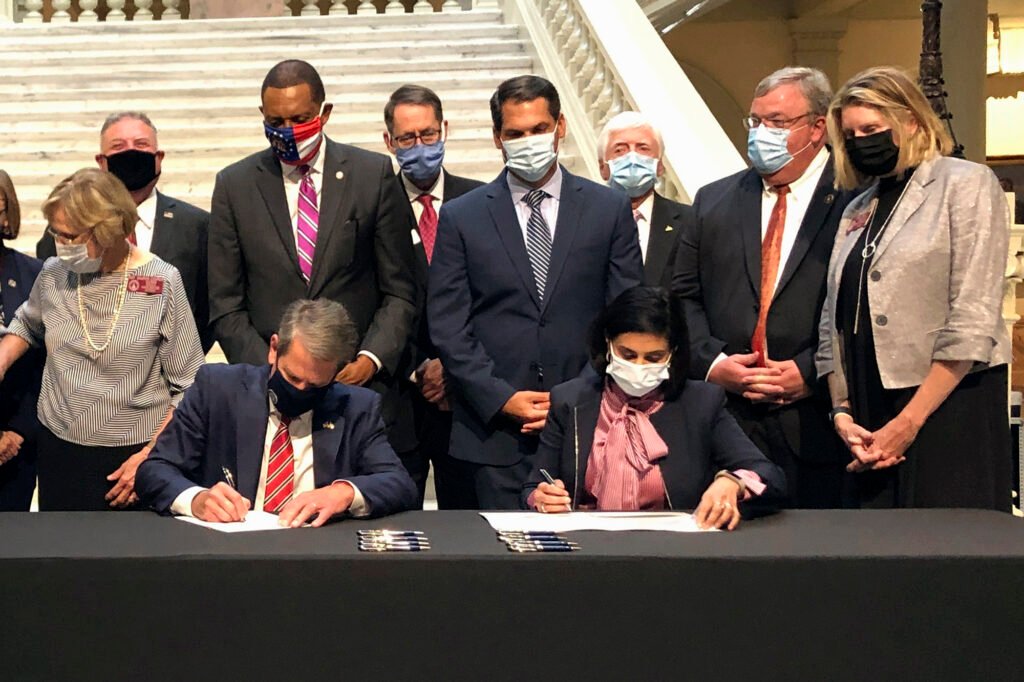The Adhvaryu family’s struggle to navigate Georgia’s public benefits system highlights the challenges faced by many residents in the state. Deegant Adhvaryu’s parents, Haresh and Nina, experienced significant delays in getting approved for Medicaid and food benefits after moving to metro Atlanta. Despite having Medicaid coverage in Virginia, they faced months of uncertainty and financial strain while waiting for their applications to be processed.
The implementation of Georgia’s Medicaid work requirement program, “Georgia Pathways to Coverage,” has only added to the processing delays. Since its launch in July 2023, the percentage of Medicaid applicants waiting more than 45 days for approval has nearly tripled. The state now has one of the slowest processing times in the country, impacting not only Medicaid applications but also applications for financial and food assistance.
Critics of Pathways argue that the program has created inefficiencies and bureaucracy that have overwhelmed the already struggling public benefits system. With only a fraction of residents participating in the work requirement program, the cost of implementation far outweighs the benefits. Georgia’s refusal to fully expand Medicaid further exacerbates the issue, leaving hundreds of thousands of residents without access to essential health coverage.
The state’s failure to invest in the agency responsible for processing public benefits applications has led to staffing shortages, high turnover, and outdated technology. Georgia’s ongoing compliance issues with processing SNAP applications highlight the systemic challenges faced by residents in need of assistance. The recent loss of Medicaid coverage for nearly half a million Georgians, including 300,000 children, underscores the urgent need for reform and investment in the state’s public benefits system.
As residents like the Adhvaryus struggle to navigate the complexities of Georgia’s public benefits system, the state must prioritize timely and efficient processing of applications to ensure that those in need receive the support they deserve. Without significant changes and investments in the system, vulnerable residents will continue to face unnecessary hardships and delays in accessing essential benefits.


